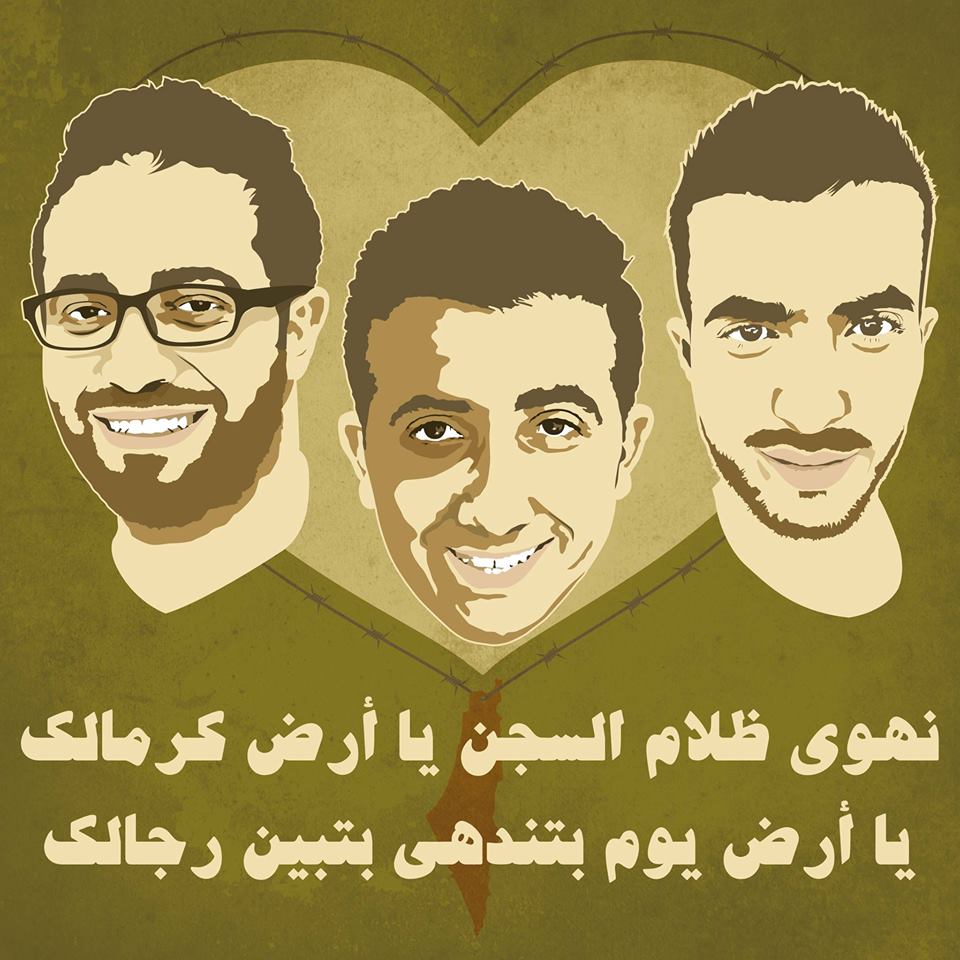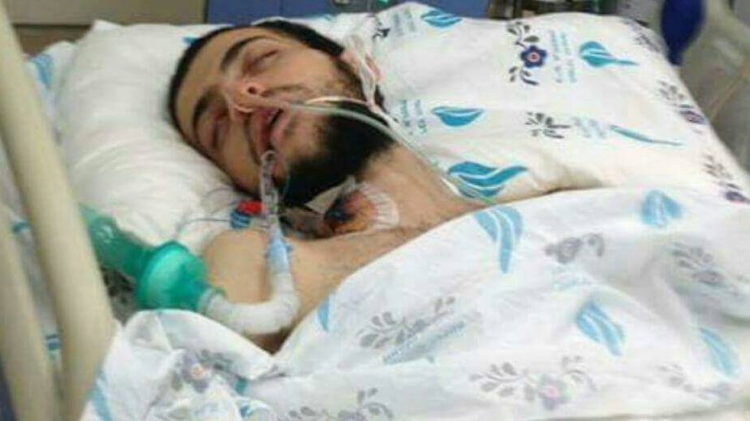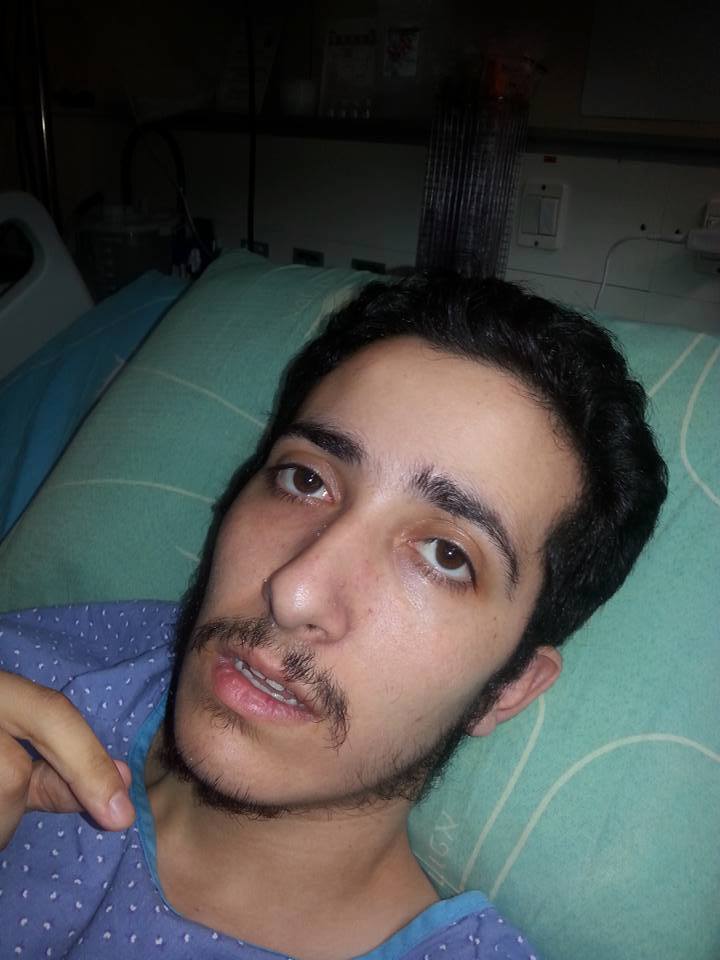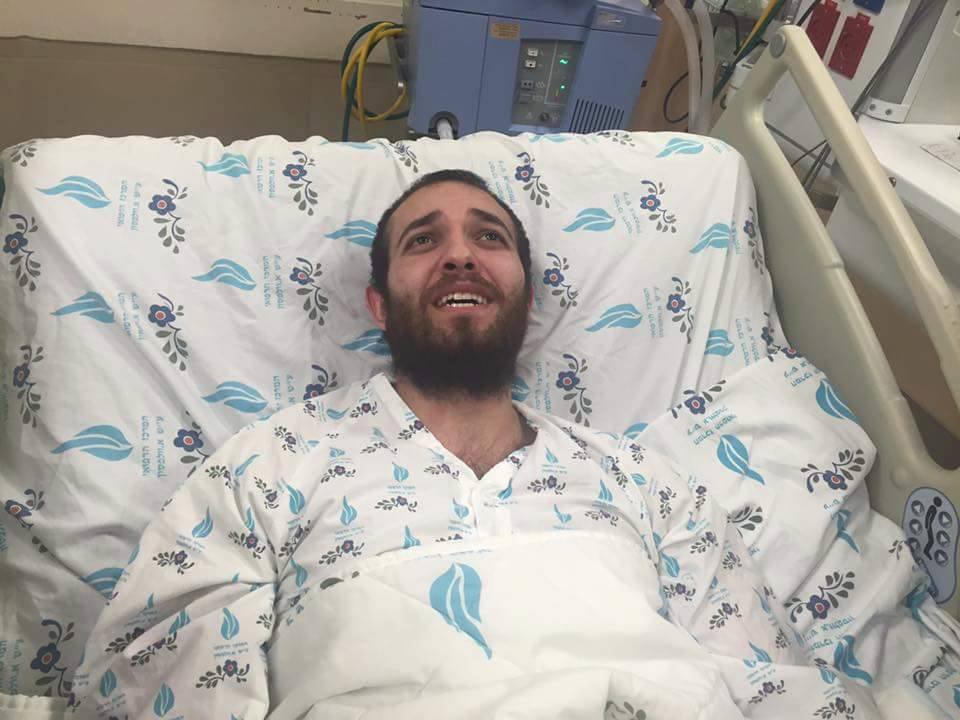 Three Palestinian prisoners remain on hunger strike demanding their freedom from administrative detention, Israeli imprisonment without charge or trial. While their detention was “suspended” by the Israeli Supreme Court, their confinement has not ended and they remain imprisoned as they reach critical states for their health. Indeed, on 13 September, the same court refused to cancel the administrative detention of Malik al-Qadi, 20, a journalism student and one of the three strikers.
Three Palestinian prisoners remain on hunger strike demanding their freedom from administrative detention, Israeli imprisonment without charge or trial. While their detention was “suspended” by the Israeli Supreme Court, their confinement has not ended and they remain imprisoned as they reach critical states for their health. Indeed, on 13 September, the same court refused to cancel the administrative detention of Malik al-Qadi, 20, a journalism student and one of the three strikers.
 Al-Qadi has been on hunger strike since 16 July, when he joined striking brothers Mahmoud al-Balboul, refusing food since 4 July, and Mohammed al-Balboul, on hunger strike since 7 July. Despite the alleged suspension of their detention, they are not allowed to be transferred to Palestinian hospitals and instead remain in Wolfson and Assaf Harofeh hospitals. Al-Qadi fell unconscious and all three are at significant risk of forced treatment and forced feeding, especially after the Israeli Supreme Court ruling upholding the “forced-feeding law,” the Law for the Prevention of Harm Caused by Hunger Strikers.
Al-Qadi has been on hunger strike since 16 July, when he joined striking brothers Mahmoud al-Balboul, refusing food since 4 July, and Mohammed al-Balboul, on hunger strike since 7 July. Despite the alleged suspension of their detention, they are not allowed to be transferred to Palestinian hospitals and instead remain in Wolfson and Assaf Harofeh hospitals. Al-Qadi fell unconscious and all three are at significant risk of forced treatment and forced feeding, especially after the Israeli Supreme Court ruling upholding the “forced-feeding law,” the Law for the Prevention of Harm Caused by Hunger Strikers.
 The mothers of the three young strikers, Sanaa Balboul and Nuran al-Qadi, visited their sons in emotional moments recorded on video and shared widely on social media, but were then forced out of Wolfson Hospital by Israeli police. Al-Qadi’s mother was threatened with arrest even as she tried to look in on her unconscious son whose detention is allegedly “suspended.”
The mothers of the three young strikers, Sanaa Balboul and Nuran al-Qadi, visited their sons in emotional moments recorded on video and shared widely on social media, but were then forced out of Wolfson Hospital by Israeli police. Al-Qadi’s mother was threatened with arrest even as she tried to look in on her unconscious son whose detention is allegedly “suspended.”
 As the strikers’ mothers were expelled from the hospital, the Israeli Supreme Court upheld the law allowing forced feeding of hunger strikers, despite the World Medical Association’s complete rejection of the practice, including the Israeli Medical Association’s rejection of the law. The IMA declared the law to be contrary to medical ethics, but the court declared that a hunger striker is not an “ordinary patient but a person who knowingly and willingly places himself in a dangerous situation as a protest or a means of attaining a personal or public goal.”
As the strikers’ mothers were expelled from the hospital, the Israeli Supreme Court upheld the law allowing forced feeding of hunger strikers, despite the World Medical Association’s complete rejection of the practice, including the Israeli Medical Association’s rejection of the law. The IMA declared the law to be contrary to medical ethics, but the court declared that a hunger striker is not an “ordinary patient but a person who knowingly and willingly places himself in a dangerous situation as a protest or a means of attaining a personal or public goal.”
 Samidoun Palestinian Prisoner Solidarity Network urges the continuation and escalation of solidarity actions in support of the three striking prisoners as all three exceed sixty days on hunger strike, they face the threat of forced feeding and treatment and their health crises become ever more severe. All three refuse any solution but the end of their administrative detention without charge or trial. They are among over 700 fellow Palestinians imprisoned without charge or trial and over 7000 fellow Palestinian political prisoners in total. International mobilization and solidarity is critical now to support their efforts for freedom not only for themselves, but for all Palestinian prisoners.
Samidoun Palestinian Prisoner Solidarity Network urges the continuation and escalation of solidarity actions in support of the three striking prisoners as all three exceed sixty days on hunger strike, they face the threat of forced feeding and treatment and their health crises become ever more severe. All three refuse any solution but the end of their administrative detention without charge or trial. They are among over 700 fellow Palestinians imprisoned without charge or trial and over 7000 fellow Palestinian political prisoners in total. International mobilization and solidarity is critical now to support their efforts for freedom not only for themselves, but for all Palestinian prisoners.
Discover more from Samidoun: Palestinian Prisoner Solidarity Network
Subscribe to get the latest posts sent to your email.




